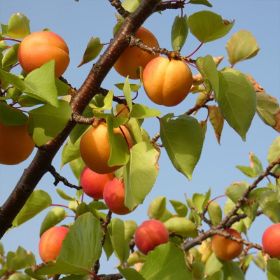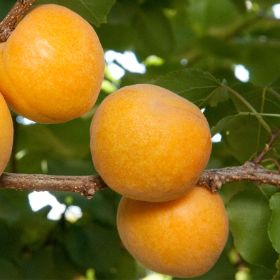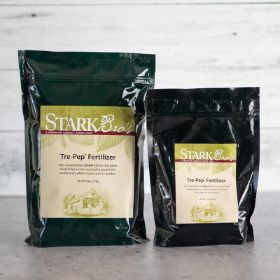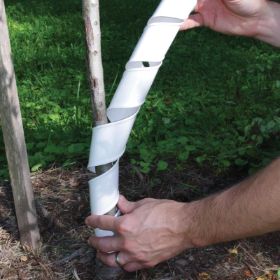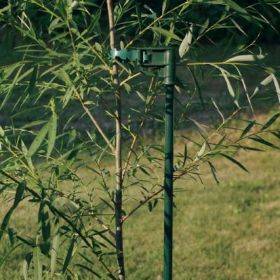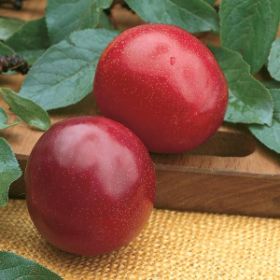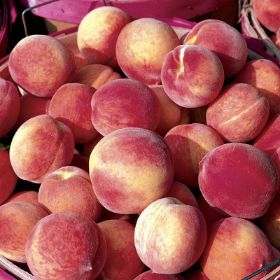Harcot Apricot Tree
Description
About the Harcot Apricot Tree
Fruit growers rave about the sweet, juicy fruits this versatile tree produces! Hardy and tolerant of many soil types, and self-pollinating, the Harcot Apricot tree is an excellent choice for backyard growers across the country.
The Harcot apricot tree is prized for its attractive appearance as well as its delicious fruit. The leaves are shiny and dark green, while the flowers are white or pale pink and bloom in the spring, providing an attractive display. This apricot tree produces medium-to-large fruit, orange with a red blush that ripen in June-July. Packed with sweet, juicy, rich flavor. Enjoy these delicious firm, free-stone fruits fresh, canned, or baked into your favorite desserts!
Growing Harcot Apricots
The Harcot apricot tree is well-suited to a range of climates and soils, but it prefers well-draining soil and a sunny location. It is also relatively pest and disease-resistant, with good tolerance to bacterial spot and perennial canker.
It’s a frost-hardy apricot that blooms late. An excellent choice for northern growers – designed for the Canadian market. Harcot requires 700 chill hours to set fruit.
One of the benefits of growing a Harcot apricot tree is that it is self-pollinating, which means it does not require another apricot tree for pollination. This makes it easier for gardeners to grow apricots even if they only have room for a single tree.
Characteristics
| Bloom Color | Pink |
| Bloom Time | Late |
| Chill Hours | 700 |
| Fruit Color | Orange |
| Fruit Size | Medium - Large |
| Hardiness Zone Range | 4 - 9 |
| Pollination | Self-Pollinating |
| Ripens/Harvest | July |
| Shade/Sun | Full Sun |
| Soil Composition | Loamy |
| Soil Moisture | Well Drained |
| Soil pH Level | 6.0 - 7.0 |
| Taste | Sweet |
| Texture | Juicy, Firm |
| Years to Bear | 2 - 5 |
Zone Compatibility
Pollination
This variety is self pollinating.
Tools & Supplies
Planting & Care
Learn all about how to grow apricot trees in The Growing Guide. An entire section of our website dedicated to your growing success.





